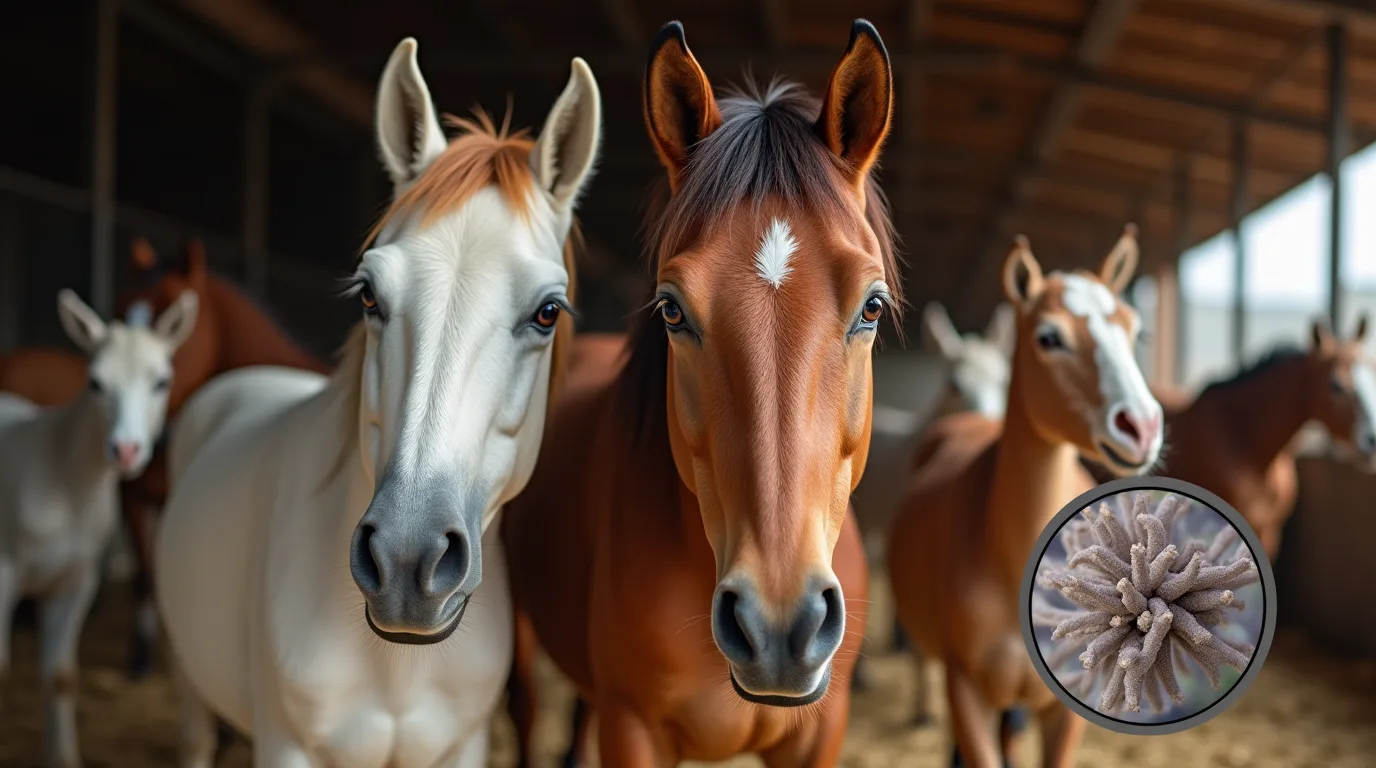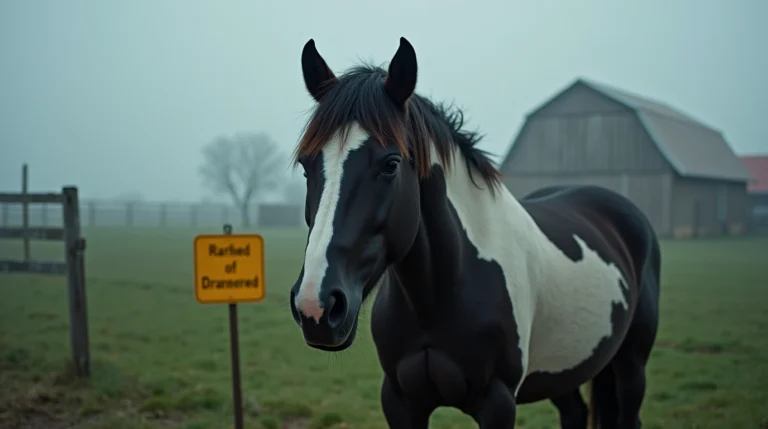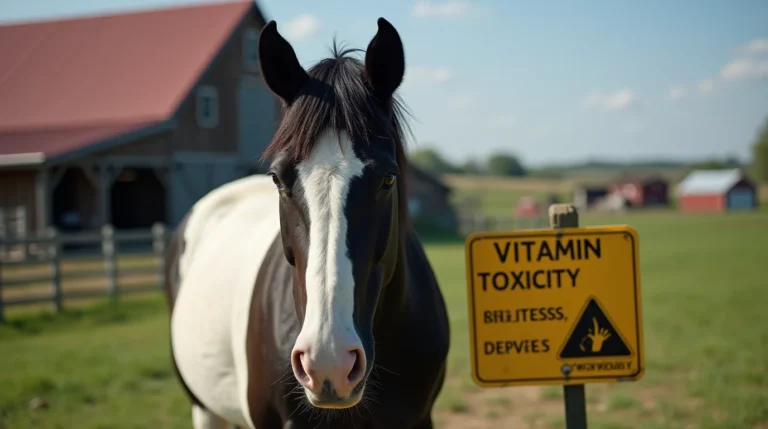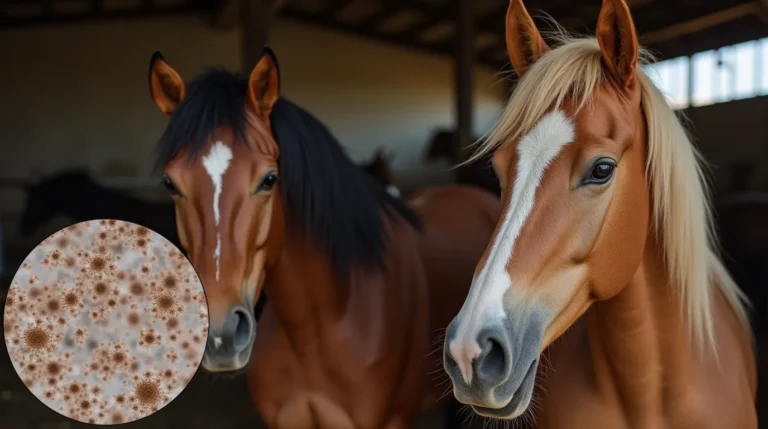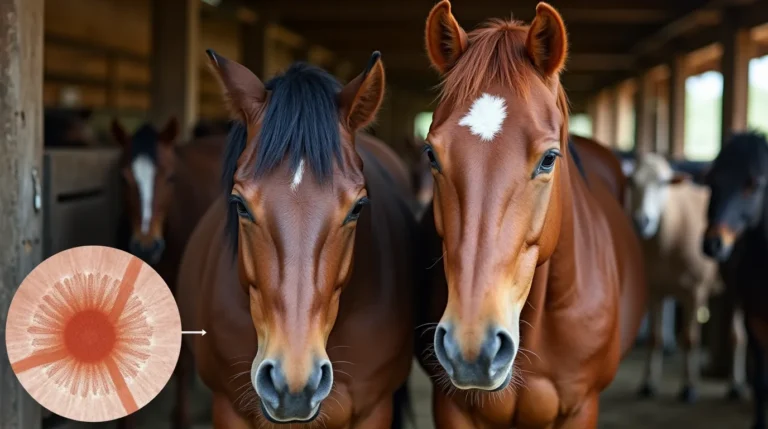Protect your horse’s health! Learn the critical signs of respiratory diseases in horses that every owner must recognize. Expert insights and essential prevention tips.
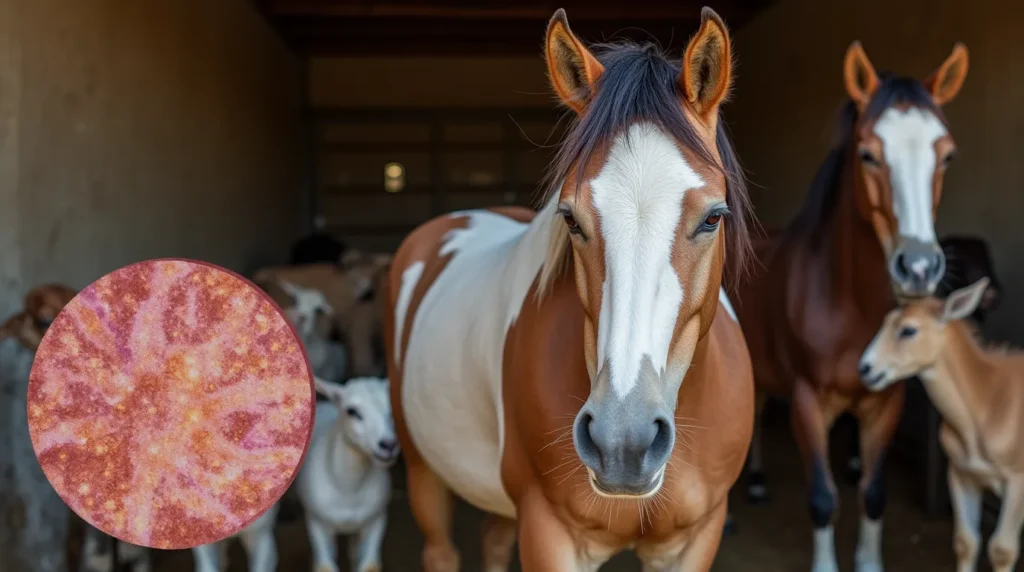
Table of Contents
Respiratory diseases in horses can be silent but deadly, posing significant risks to your equine companion’s health and performance. As a horse owner or caretaker, understanding the early warning signs of respiratory complications is crucial for timely intervention and effective treatment. This comprehensive guide will walk you through the five most critical symptoms of respiratory diseases in horses that should never be overlooked.
The Importance of Respiratory Health in Horses
Horses are athletes by nature, with respiratory systems designed for high-performance activities. Any compromise in their breathing can dramatically impact their quality of life, performance, and overall well-being. Respiratory diseases can range from mild infections to serious chronic conditions that can significantly reduce a horse’s ability to work, compete, or simply enjoy daily activities.
Understanding Respiratory Diseases in Horses
What Causes Respiratory Issues?
Respiratory diseases in horses can stem from various factors:
- Environmental conditions (dust, mold, allergens)
- Viral and bacterial infections
- Stress and immune system challenges
- Genetic predispositions
- Poor stable management
- Exposure to pollutants
5 Critical Symptoms of Respiratory Diseases in Horses
1. Persistent Coughing
The Silent Warning Signal
A horse’s cough is never just “normal.” When you notice:
- Frequent, dry, or productive coughing
- Coughing during exercise or at rest
- Mucus or discharge accompanying the cough
Red Flag: Persistent coughing could indicate:
- Equine Respiratory Conditions
- Potential Infections
- Early Signs of Chronic Respiratory Disease
2. Nasal Discharge
More Than Just a Runny Nose
Types of Nasal Discharge to Watch:
| Discharge Color | Potential Indication | Severity Level |
| Clear | Mild Irritation | Low |
| White/Thick | Viral Infection | Moderate |
| Yellow/Green | Bacterial Infection | High |
| Blood-Tinged | Serious Respiratory Condition | Critical |
3. Reduced Performance and Exercise Intolerance
When Your Horse Can’t Keep Up
Signs include:
- Decreased stamina
- Rapid fatigue during exercise
- Unusual reluctance to work
- Decreased athletic performance
- Visible struggling to breathe during mild activities
4. Abnormal Breathing Patterns
Listening to Your Horse’s Lungs
Critical Breathing Indicators:
- Increased respiratory rate at rest
- Labored or difficult breathing
- Nostril flaring
- Visible abdominal muscle movement during breathing
- Whistling or unusual sounds while breathing
5. Weight Loss and General Weakness
The Systemic Impact of Respiratory Diseases
Respiratory issues can lead to:
- Unexpected weight loss
- Reduced muscle condition
- General lethargy
- Decreased appetite
- Compromised immune response
Diagnostic Approaches
When to Consult a Veterinarian
- Symptoms persist beyond 24-48 hours
- Multiple symptoms are present
- Performance decline is noticeable
- Any sign of severe respiratory distress
Diagnostic Tools
- Physical examination
- Lung auscultation
- Endoscopy
- Bronchoalveolar lavage (BAL)
- Blood tests
- Pulmonary function tests
Prevention Strategies
Creating a Healthy Environment
- Ensure proper stable ventilation
- Reduce dust and allergen exposure
- Implement regular cleaning protocols
- Use high-quality hay and bedding
- Maintain consistent exercise routines
Recommended Pet Products on Amazon
- Professional Equine Respiratory Health Supplement
- Advanced Horse Dust Mask
- Portable Horse Barn Air Purifier
- Veterinary-Approved Immune Boost Powder
Respiratory Diseases in Horses (FAQ)
How quickly do respiratory diseases progress in horses?
Progression can vary from days to weeks, depending on the specific condition and individual horse’s health.
Are some horse breeds more susceptible to respiratory issues?
Certain breeds, particularly those with higher performance demands, may be more prone to respiratory complications.
Can respiratory diseases be fully cured?
Many respiratory conditions can be managed effectively with proper veterinary care and environmental management.
How expensive is treating horse respiratory diseases?
Treatment costs vary widely, from $200 for minor infections to several thousand dollars for chronic conditions.
Are there vaccination options for respiratory diseases?
Several vaccinations can help prevent specific respiratory infections. Consult your veterinarian for personalized recommendations.
Conclusion
Recognizing and addressing respiratory diseases in horses requires vigilance, knowledge, and prompt action. By understanding these five critical symptoms, you’re better equipped to protect your horse’s health and ensure their long-term well-being.
Call to Action: Share your experiences with horse respiratory health in the comments below! Have you encountered any of these symptoms? Your insights could help fellow horse owners.
Disclaimer: This article is for informational purposes and should not replace professional veterinary advice.
Explore More Horse Care Tips at BlithePet

